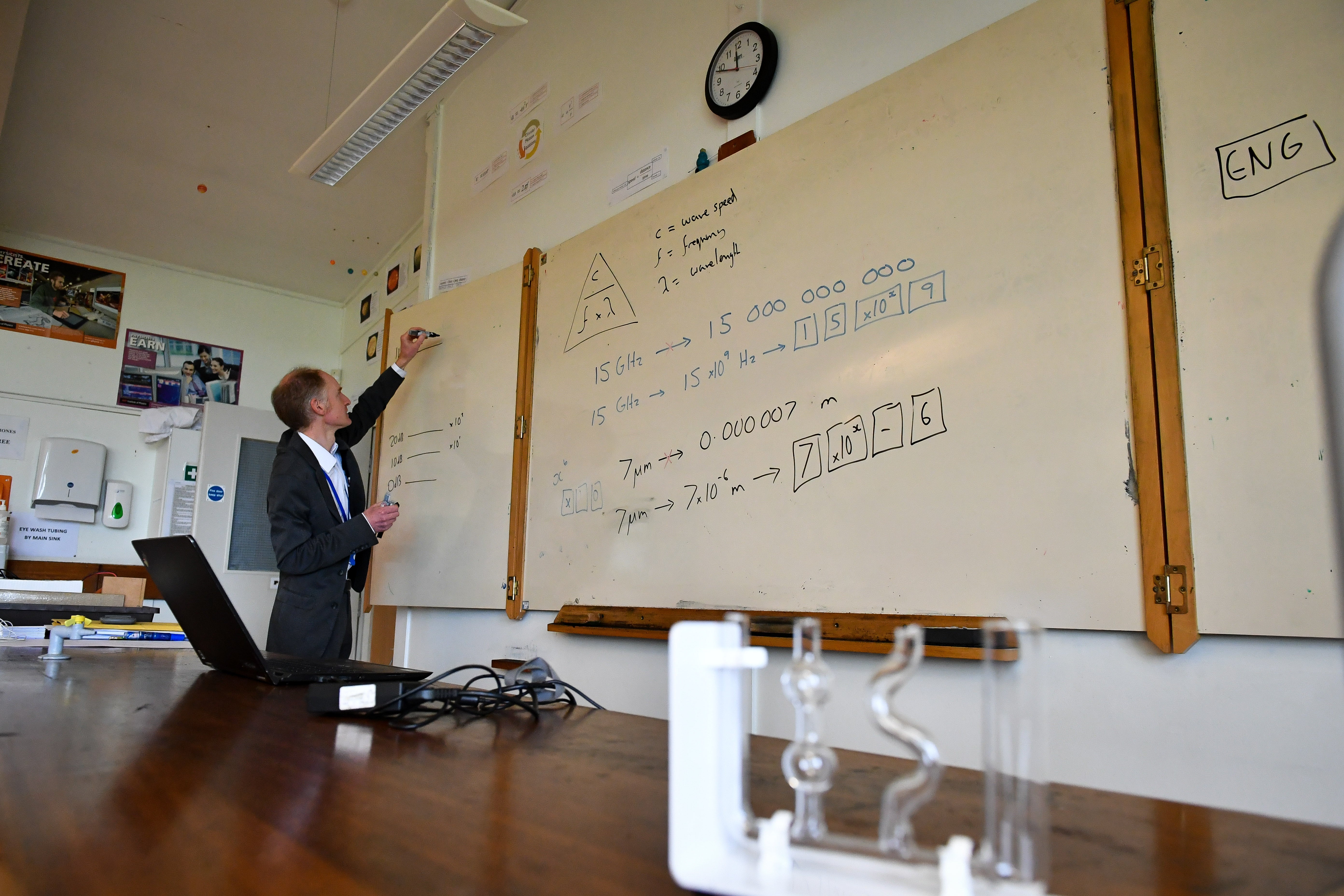
Schools in education “cold spots” identified in the levelling up White Paper have fewer vacancies and are less likely to recruit specialist science teachers, according to new research.
The White Paper identified 55 education “cold spots”, or education investment areas (EIAs), where school outcomes are weakest which have been earmarked for targeted support, including boosted funding to retain the best teachers in high-priority subjects.
The areas include Knowsley, Hartlepool, the Isle of Wight and Oldham.
However, to work fully it also requires schools in more disadvantaged areas to seek specialist teachers in the first place— SchoolDash
Researchers said that Government plans to recruit more science teachers to the EIAs through a salary premium would only work if schools were seeking out specialist science teachers in the first place.
The research found that the number of teaching vacancies tended to be lower in the education “cold spots”, a trend that pre-dated the pandemic.
Science teaching vacancies in EIAs were also much less likely to specify a particular science, such as biology or chemistry.
The researchers said that this lent some support to the idea that retention bonuses for early-career teachers in subjects such as chemistry and physics could help schools to keep teachers in high-priority subjects.
They added that it also suggested the bonuses should be higher for EIA schools.

“However, success will also require the schools themselves to seek such specialist teachers in the first place,” they added.
The analysis by the SchoolDash website looked at the number of vacancies posted in schools and colleges across England from 2019 to 2022.
Prior to the pandemic, schools in EIAs were advertising fewer vacancies and this continued into the 2021/22 academic year.
In 2019, there were 12.5 adverts per 1,000 teachers for science in EIAs compared with 15.8 in non-EIA schools. By 2022, there were 12.4 adverts in EIAs compared with 16.9 in non-EIA schools.
Non-EIA schools had higher numbers of adverts for core subjects of English, maths and science across the three-year period between 2019 and 2022.
The highest percentage differences between EIA schools and non-EIA schools in the number of vacancies were seen in business, humanities and music & drama.
The disparity between EIA and non-EIA schools appears to be a real one that largely reflects actual underlying recruiting rates, presumably driven by staff turnover— SchoolDash
SchoolDash said that for some curriculum areas such as business, non-EIA schools might be more likely to offer this subject in the first place, but that this would not be true for core subjects such as science, maths, English and the humanities, where there were still “considerable disparities” in recruitment.
The researchers said that they thought “the disparity between EIA and non-EIA schools appears to be a real one that largely reflects actual underlying recruiting rates, presumably driven by staff turnover”.
The report also finds the proportions of science teacher adverts that specify individual sciences such as biology or chemistry rather than science overall is lower in EIA schools, with around 20% specifying a particular science in EIA schools over time compared with around 30% of adverts for non-EIA schools.
The researchers said this partly reflects the fact there is lower take up of individual sciences in the education “cold spots” with more pupils opting for double science GCSE.
They note that in 2022-2023, “levelling-up premium payments” will be introduced of £1,500-£3,000 for early career teachers of chemistry, computing, maths and physics in designated schools – with higher payments for schools in EIAs – and that analysis by the Gatsby Foundation and University College suggests this will improve retention.
“However, to work fully it also requires schools in more disadvantaged areas to seek specialist teachers in the first place,” SchoolDash said.
“Despite evidence that these roles are no harder to fill, it appears that they remain more inclined to seek generalist science teachers instead.”
When the policy was announced, Education Secretary Nadhim Zahawi said: “The quality of pupils’ education in crucial subjects like maths and science should not be dependent on where they live, and teachers shouldn’t feel that they must leave their local area for a better-paid job.
“Our levelling up premium will help give children and young people the best specialist teaching in maths, physics, chemistry and computing, while supporting jobs in low-income areas, helping to level up education for all and grow the economy.”







